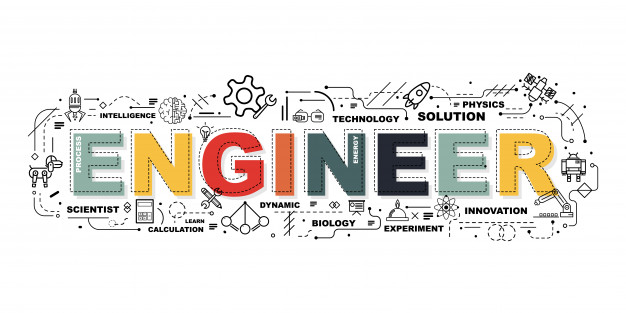Is It Easy to Work as Mechanical Engineering in South Korea

Engineering is a branch of science, maths and technology concerned with the design, building and use of engines, machines and structures. Engineers figure out how things work and find practical ways for scientific discoveries.
The Pyramid of Giza, Eiffel Tower, Stonehenge and Taj Mahal stand as tall and strong monuments thanks to the heritage of engineering. As technology evolves, engineers no longer deal only with buildings, monuments and machines. Now, they are also involved in other industries, from building maps to human genetics.
Why South Korea?

South Korea takes education seriously. Apart from a beautiful travel destination, South Korea can be your top choice to pursue higher education. Below are some reasons why you should choose South Korea:
1. Low cost of studying compared to certain countries
Studying in South Korea will be a lot more affordable in comparison to the UK, USA, Canada, and other European countries. You will feel less financial pressure by choosing a country with a stable economic condition (RM 1= 286.13 South Korean Won as of 2022).
As a means of welcoming more international students, many South Korean universities are also offering scholarships to international students.
2. Quality education
Education has been one of the country's pillars to develop and compete with others. Be rest assured that international students studying in South Korean universities will be offered the best learning experience.
3. Popular travel destination
South Korea is undoubtedly a popular destination for travellers around the globe. From the green and hilly countryside to cherry blossoms and centuries-old Buddhist temples. The local people are also warm and active.
4. Employment opportunities
Studying in South Korea will open up a wide range of employment opportunities for graduates. Graduates from South Korean institutes are highly sought after by employers all over the world.
Furthermore, the stable economic condition of the country will be a secure choice for students to consider as it is also a great opportunity to continue being employed there and become a permanent resident.
Keep reading as we will be guiding you with more important guides on a few topics:
- What is Engineering about?
- What are the major fields in Engineering?
- What are the important skills I need in this field?
- What are the entry requirements and qualifications?
- How long will I be studying in this programme?
- How much are the average tuition fees?
- What are the job opportunities?
- Universities in South Korea offering Engineering programmes.
What is Engineering about?

Engineering is a relation between science, maths and technology. It involves the use of physics, mathematics, architecture, machine system and more to create or innovate something.
By applying scientific, economic and mathematical knowledge, engineers work to design, build, maintain and improve all sorts of things, including structures, machines, electronic devices, systems and processes.
What are the specialisations in Engineering?
In Engineering, there are a number of major subjects that students can look into. Below are the popular engineering fields according to the branches of engineering and the list of subjects you can expect to learn:
Civil Engineering
- Civil Engineering Materials
- Structural Mechanics
- Surveying
- Geotechnics
- Environmental Engineering
- Hydraulics
- Coastal / Highway / Traffic Engineering
Chemical Engineering
- Thermodynamics
- Process Engineering
- Fluid Mechanics
- Industrial Chemistry
- Reaction Engineering
- Plant Design
Electric & Electronic Engineering
- Digital & Analogue Electronics
- Signal Processing
- Control Systems
- Circuit Design
- Computer Architecture
- Power Electronics
Mechanical Engineering
- Thermodynamics
- Fluid Mechanics
- Solid Mechanics
- Automatic Control & Instrumentation
- Machine System Dynamics
Aerospace Engineering
- Design, manufacturing and testing of aircraft and spacecraft
- Testing of parts and components eg.airframes and powerplants
- Communication & navigation systems
Nuclear Engineering
- Design, manufacturing and construction operation
- Nuclear radiation
- Radioisotope production & research
- Monitoring and protection of harmful effects of radiation
Biomedical Engineering
- Designing devices, equipment and systems for use in medical practice
- Medical Imaging
- Systems physiology
What are the career prospects for every specialisation?

Engineering is a broad field and as you can see above, it is divided into several specialisations. It's up to your interest on which major you prefer to take. If you're wondering what are the career opportunities for each specialisation in engineering, here are some of the options you can consider:
Civil Engineering
- Consulting Engineer
- Construction Engineer
- Geotechnical Engineer
- Structural Engineer
- Site Engineer
- Urban Planning Engineer
Chemical Engineering
- Biochemical Engineer
- Environmental Engineer
- Petroleum Engineer
- Process Engineer
- Safety Engineer
- Waste Management Engineer
Electrical & Electronic Engineer
- Electrical Engineer
- Electronics Engineer
- Telecommunications Engineer
- Design Engineer
- Control Engineer
- Computer Engineer
Mechanical Engineering
- Automotive Engineer
- Industrial Machinery Engineer
- Robotics Engineer
- Manufacturing Engineer
- Materials Engineer
- Project Engineer
Nuclear Engineering
- General Dynamics Engineer
- Project Engineer
- Instrumentation Engineer
Biomedical Engineering
- Biomedical Engineer
What are the skills and qualifications needed in this field?
1. Leadership
You're a leader in nature. You love working on ideas purposefully and love leading a team.
2. Critical Thinking
Engineering takes a lot of research and development, hence a critical mind is apt for this field. You need to analyse and evaluate your findings and solve complex problems.
3. Organised and self-orientated
You're someone who has self-values and discipline. Your teammates can trust you and hand over challenging tasks as research requires strategic thinking and planning skills to accomplish tasks.
How long will I study in this programme?
The study duration could vary from one institute to another. However, as a general estimate, we have compiled a general estimate of the duration according to the study levels and qualifications.
Foundation/A-Levels: 1 year
Diploma: 2 years
Undergraduate Degree: 3 - 4 years
Master's Degree: 2 - 3 years
PhD: 1 - 2 years
What are the entry requirements and qualifications?
To successfully enrol into the Engineering programme, students must meet the minimum academic and entry-level English language requirements.
However, requirements could vary according to institutions. We advise you to refer to the institutions directly for more details.
Diploma in Engineering:
- SPM with a minimum of 5 passes in Science subjects (Physics, Mathematics)
Bachelor's degree in Engineering:
- Foundations/A-Levels in Science (Physics, Mathematics)
- Pass 4 relevant subjects in STPM, including English
- Admission into Year 2 upon completing Diploma in Engineering
Master's degree in Engineering:
- Completed any relevant Engineering Degree or any equivalent International Degree with minimum CGPA 2.0
PhD:
- Completed a relevant Masters Degree from recognised institutes or any equal international institute.
English language requirements (minimum):
- TOEFL score 55
- IELTS score of 5
- Kaplan iBT 61
- Pearson Test of English (PTE) 53
- MUET Band 4 and above
Test of Proficiency in Korean (TOPIK):
There are universities in South Korea that require their students to achieve a certain level of Korean language proficiency in order to be accepted into the programme as imposed by the government.
International students are required to submit TOPIK Level 3 or higher along with admission documents and other application forms. They must continue taking Korean language courses to reach TOPIK 4 or higher in order to graduate.
This Korean language requirement also depends on the course you plan to enrol in. Some courses are only taught in the Korean language, hence, you need to take a Korean language course and TOPIK to achieve the minimum passing score.
How much are the average tuition fees?
The average tuition fees for Engineering can vary from one institute to another according to different levels and qualifications. Here are the average estimated tuition fees below:
Foundation/A-Levels: RM 15,000 – RM 30,000
Bachelor's Degree: RM 65,000 – RM 190,000
Master's Degree: RM 75,000 – RM 125,000
PhD: RM 75,000 – RM 125,000
How much does an engineer make?
There are a number of job possibilities for an Engineering major. The right job will be dependent on your personal skills, preferences and personality.
Here are the career choices available for an Engineering graduate:
Project Engineer: RM 6,000
Computer Engineer : RM 8,000
Automotive Engineer: RM 5,000
Biochemical Engineer: RM 6,000
Consulting Engineer: RM 5,000
Top Universities in South Korea that offer Engineering programmes
1. Korea Advanced Institute of Science and Technology (KAIST)
Formerly known as the Korea Advanced Institute of Science and Technology, KAIST was South Korea's first research-oriented science and engineering institution when it was founded in 1971. It also ranked 20th in the QS Global World University Rankings by Subject 2022 for Engineering and Technology.
2. Seoul National University
Founded in 1946 by the merger of ten higher education institutions, Seoul National University enjoys a prestige, unlike other local institutes. The university is ranked 34th in the QS Global World University Ranking by Subject 2022 with more than 28,000 students enrolled on undergraduate, postgraduate and doctoral programs.
3. Pohang University of Science and Technology (POSTECH)
Pohang University of Science And Technology (POSTECH) is a private South Korean university dedicated to engineering and the sciences. It ranks 79th in the QS Global World University Ranking by Subject 2022.
4. Korea University
Korea University was the nation's first university funded and administered solely by Koreans. Korea University is home to over 33,000 students from all parts of the nation and every corner of the globe. It ranks 76th in the QS Global World University Ranking by Subject 2022.
5. Sungkyunkwan University (SKKU)
Sungkyunkwan University has a long and distinguished history of 607 years. As one of the most significant institutions in Korea, SKK University has played a role in everything from the development of the Korean alphabet to the teaching of Confucianism and the underlying social philosophy of modern Korean society. It ranks 129th in the QS Global World University Ranking by Subject 2022.
6. Hanyang University
Founded in 1939, Hanyang University is the first ever private institution in South Korea developed by the engineering department. It ranks 106th place in the QS Global World University Ranking 2022 (Engineering and Technology).
7. Yonsei University
With over 153 research centers and institutes, Yonsei University is one of South Korea's leading universities. The institution has contributed significantly in the fields of medicine, biochemistry, human health, engineering and many more. It ranks 96th place in the QS Global World University Ranking 2022 for Engineering and Technology.
Source: https://www.easyuni.my/en/south-korea-engineering/
0 Response to "Is It Easy to Work as Mechanical Engineering in South Korea"
Post a Comment